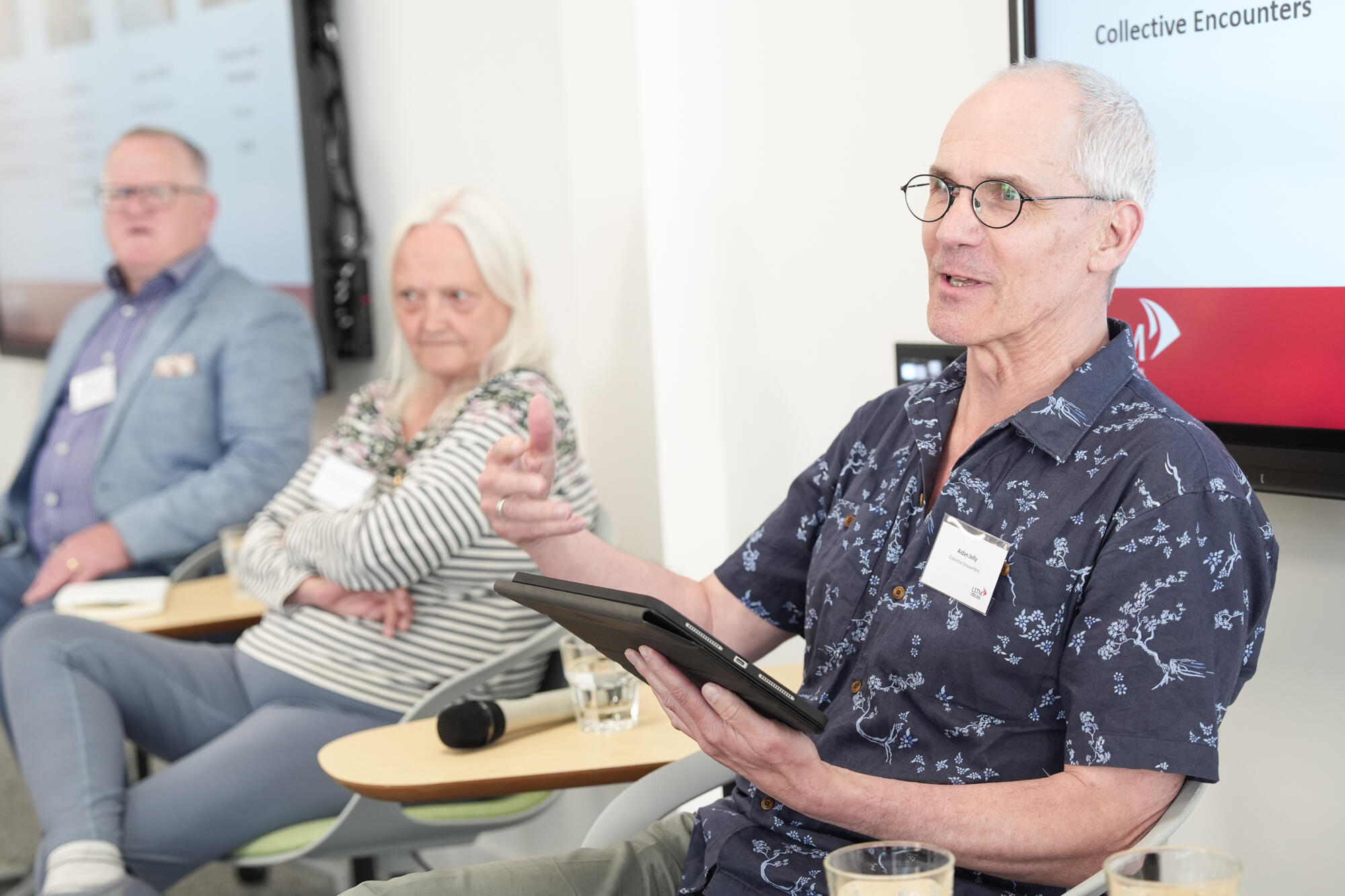
Personal reflections on the LSTM/CaSE Round Table event 13th May 2025
By Aidan Jolly, Co-Artistic Director (Research) of ReCITE Partner “Collective Encounters”
Setting the Scene: Innovation and Community in the Liverpool City Region
LSTM and the Campaign for Science and Engineering recently organised a Round Table event as part of the Liverpool City Region’s first ‘Investment Innovation Fortnight’. This is in the context of the Combined Authority’s strategic plans for boosting science and technology research and development investment in the region, building on the region’s considerable track record in this area. The Round Table’s aim was to look at how to build, in the words of the organisers, “place-based and community-centred innovation ecosystems for health and prosperity”. A number of ReCITE members attended, from the Core Group, partner organisations and Community Innovation Teams. On the Panel were Dr Séamus O’Neill, Managing Director of Liverpol Health Partnerships, Professor Janet Hemingway, Founding Director of iiCON and Professor of Tropical Medicine at LSTM, John Whaling, Lead Officer – Innovation & Commercialisation for Liverpool City Region Combined Authority, and in the Chair, Dr. Becky Jones-Phillips, Director Enterprise and Innovation for LSTM. I represented ReCITE on the Panel and was effectively the only ‘community’ voice on the Panel.
A Provocative Thought: Communities Leading the Research
A key question asked of the panel was:
“In order to grow our Innovation offer in a meaningful way we need to understand the communities needs and involve them in co-creating solutions. How can we do this effectively? Clearly dialogue between these audiences needs to work effectively and in a way which doesn’t add unrealistic burdens on local communities”.
As a thought experiment, I suggested a provocation:
- What if communities were the ones who initiated the research, decided on the research questions, and developed the methodologies assisted by the institutions?
- What would this mean about the relationships developed?
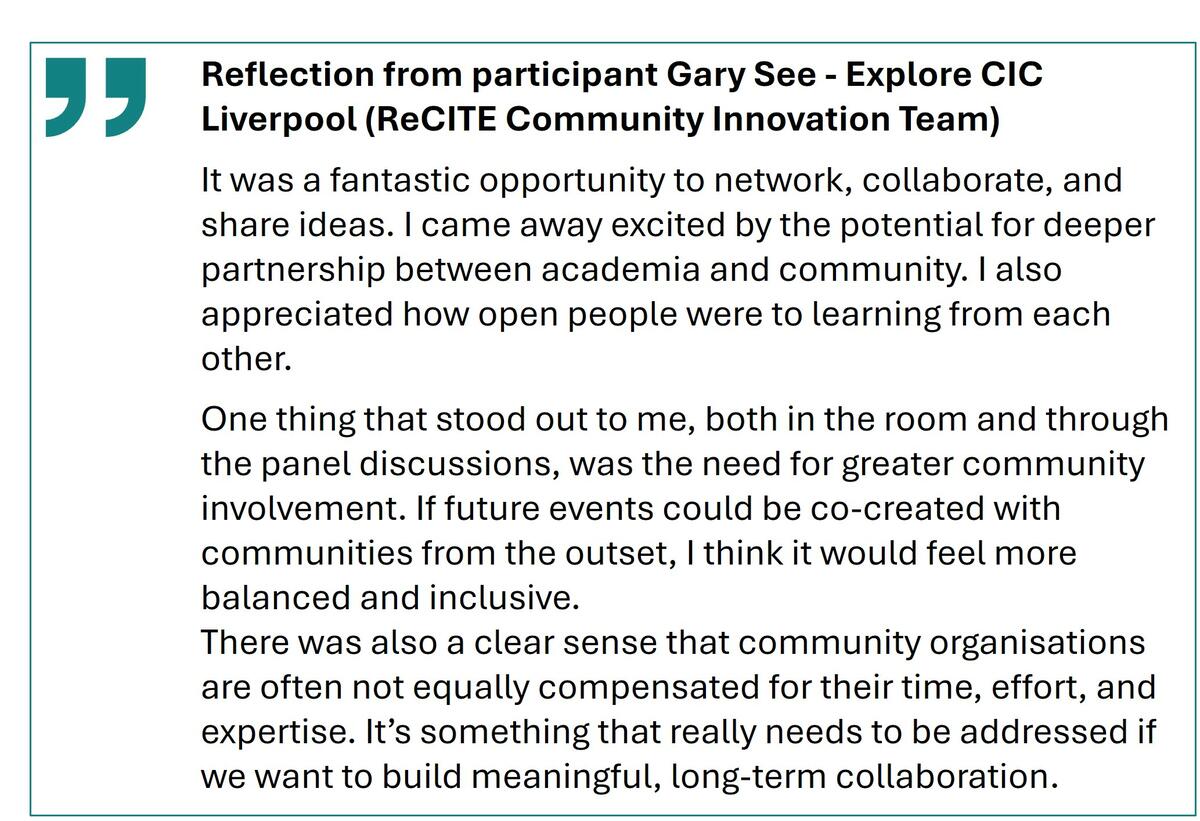
My feeling from the following discussion was that this did not resonate strongly with most of the academics and local authority officers in the room, who outnumbered people from community organisations by around 10 to 1. However, it did open a door for good discussion of the barriers to more effective community involvement.
The Resource Gap: Barriers to Genuine Participation
One such barrier is the huge disparity in resources between research institutions and industry on the one hand and community groups on the other. Currently, meaningful community participation is complex and difficult: for example, funding participant engagement is burdensome under current UKRI (UK Research and Innovation) rules. Community organisations and potential community research partners may not have any administrative support, or any full-time staff. This can lead to projects where researchers are paid, but participants are volunteers. How is this to be managed, as innovative research practices bring in more people from ‘the community’, more often? How can extractive practices be avoided, so participants own the benefits of the research? To what extent and how are participants involved in analysis, publication and other forms of dissemination?
Beyond Audiences: Reframing Community Roles in Research
Another question put to the panel asked about articulating the impact of research to ‘audiences of patients’. I found this provocative, in that these ‘audiences’ are not passive receivers of knowledge. If communities are participants in research, they are far more than audiences. They are co-producers of research outcomes. There is also the question of the kind of language used in research, not only in contributing to the co-creation of proposals, but also in public presentations and engagement events. Who gets to decide who is the ‘audience’ and what constitutes ‘impact’, and how it is framed? All too often the metrics of impact in research programmes do not take wider impacts and unintended consequences into account.
Over-Researched and Under-Heard: A Call for Equitable Innovation
Panel member Séamus O’Neill pointed out that underlying many research questions are fundamental problems of poverty and inequality. Readers of this blog will almost certainly be aware of the devastating impact on communities of multiple ‘wicked problems’ in this arena, and as ‘The State of Health in Liverpool 2040’ report shows, these are likely to intensify (for example, the number of people diagnosed with depression is likely to double).
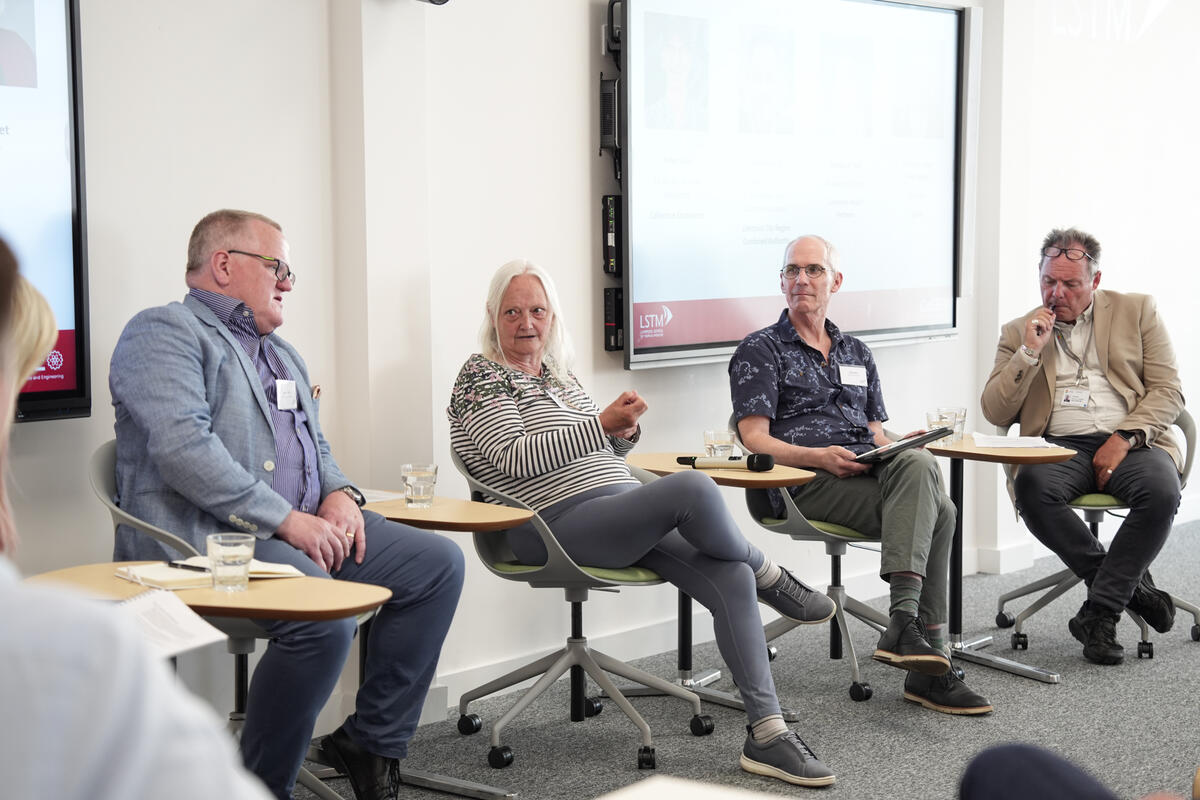
‘The community’ in this context is therefore seen as research ‘subject’ – but many communities are ‘over-researched’ when it comes to poverty and ill-health, especially those that are diasporic and/or working class. Not surprisingly, this leads to these communities being sceptical of the benefits of such research, especially as the overall problems are getting worse. What if innovation took the form of co-producing research with such communities that addresses wider issues of inequity such that the communities themselves are not the subjects of research, but active investigators in wider enquiries into, say, the effects of intensifying wealth accumulation?
Building Trust: Long-Term Engagement Over Quick Wins
At the end of the panel, we were asked to suggest how can we ensure that regional innovation agendas resonate with the community and build trust. I believe trust is likely to develop when engagement is long term; when the ‘researchers’ and the ‘researched’ have the same stake in the game (I like to think of this by asking who can walk away when the research project is over); when communities can develop their own initiatives; and when wider issues of institutional mistrust and lack of delivery or extractive processes can be addressed explicitly.
Ethics in Practice: When Standard Protocols Fall Short
Ethical issues featured quite strongly in smaller group setting following the panel discussion. Academic ethical practice, particularly the nature of consent forms required, also acts as a barrier to participation as participants from communities do not always engage in research projects in a linear manner. In a medical trial, it is relatively clear what participants are consenting to. But in some of the more complex (and innovative!) community-based research projects, informed consent can be very nuanced, and ethics committees may fail to understand some of these complexities. For example, much community research, especially using creative methodologies, may involve workshops where the content evolves from one workshop to the next. This may cause problems for some ethics committees, who may want to know exactly what research questions are being asked at any point. These issues can be overcome, but place an extra burden on community organisations, who tend to use more accessible (but no less ethical) consent practices informed by knowledge of their communities and participants.
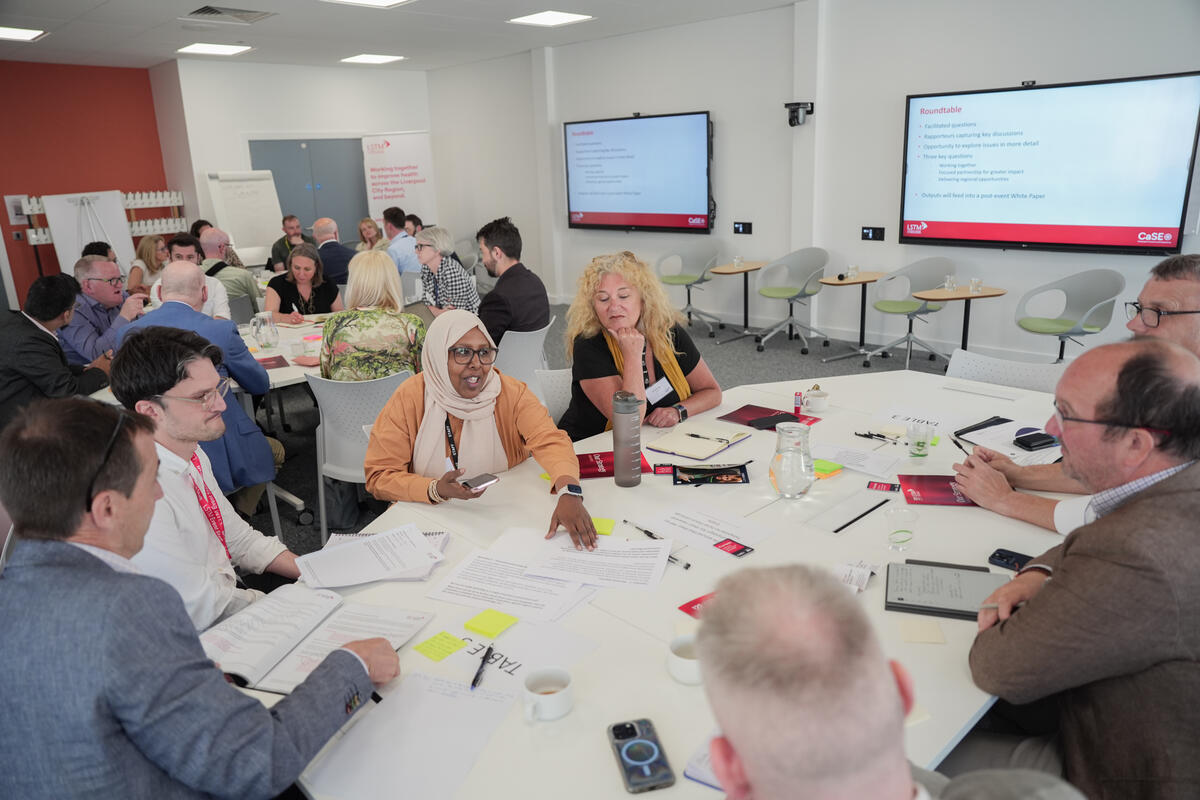
Appropriate Innovation: Learning from Greater Manchester and Beyond
An interesting question with regard to the importance of context is the status of the Liverpool City Region (LCR) in the North as a whole. While the alliance between the Mayors of LCR and Greater Manchester (GM) allows for a strategic approach to various key questions around transport infrastructure (for example), it’s certainly important to ask if the model of development applied in GM is really appropriate to LCR. What are the innovative approaches that might involve communities in this discussion in more depth? GM has developed a Creative Health Strategy, that has embedded the involvement of communities and allied creative organisations, building on the strong evidence base for the role of cultural activity in tackling health inequity, and LCR can certainly learn from the methods used to co-produce this.
I felt the emphasis in this event was understandably scientific/technical. However, research outcomes are not purely technical, new methodologies or technological advances are part of a wider social and political context, where innovation will not be taken up by communities, who are often rightly suspicious of outside innovation, not least because it brings disruption. What is innovative for the research sector or a local authority can sometimes be highly destructive of local knowledge and community networks in a given place.
What if there was a category of ‘appropriate innovation’? The really important innovations are social and political: new ways of relating, organising and sharing - this is particularly true in the area of just climate transitioning for example. Investing in the mobilising of knowledge, experience and skills embedded in communities should mean that innovative technologies and methods can be properly placed in a people-centred context, making it more likely they will bring real benefits at neighbourhood level. This requires genuine multi-centred conversations where if communities do not feel an innovation is appropriate, that it can be reconsidered. This in itself would be innovative!
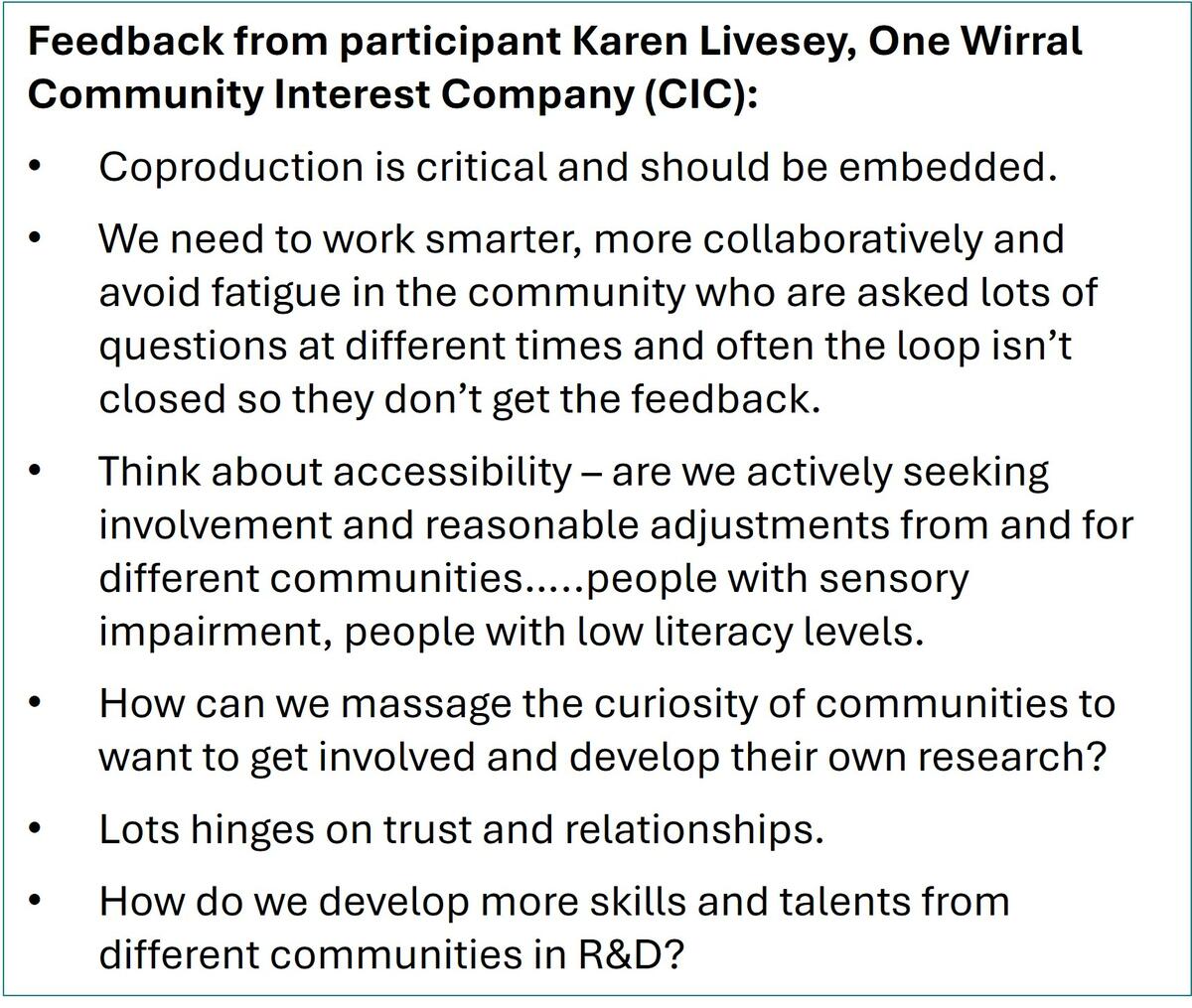
Valuing Knowledge in All Forms: Creativity as a Research Method
There are many unanswered questions in my mind: Who decides what constitutes evidence/knowledge in research contexts? How can we value community knowledge that is felt rather than explicitly articulated? Creative research methodologies, using artforms such as theatre, written and spoken word, zines, and many others, are coming into their own. They differ from methodologies that have their roots in academia, such as Community Based Participant Research, in that they are led by cultural practitioners and participants in partnership with researchers. They have the power to communicate complexity and nuance, in the participants’ own idioms, and to allow the articulation of multiple points of view, and of non text-based or non-verbal means of expression. In the ReCITE project, we learned from the process of building the bid, and the creative organisations, Community Innovation Teams, and research teams are centring Storytelling as a way of challenging health inequity. This promotes discussion in a form which enables more equal exchange of ideas and views and is a powerful tool for exploring possible futures.
Looking Forward: Towards a Creative Health Strategy for LCR
One of the most interesting aspects of the Round Table is the forthcoming Innovation ‘White Paper’. Could this be used to begin the work of developing a Creative Health Strategy for the LCR?
BACK to ReCITE
|
ReCITE is funded by the Arts and Humanities Research Council (AHRC), part of UK Research and Innovation. |
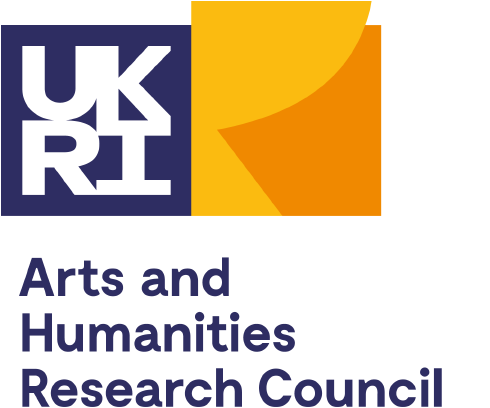 |